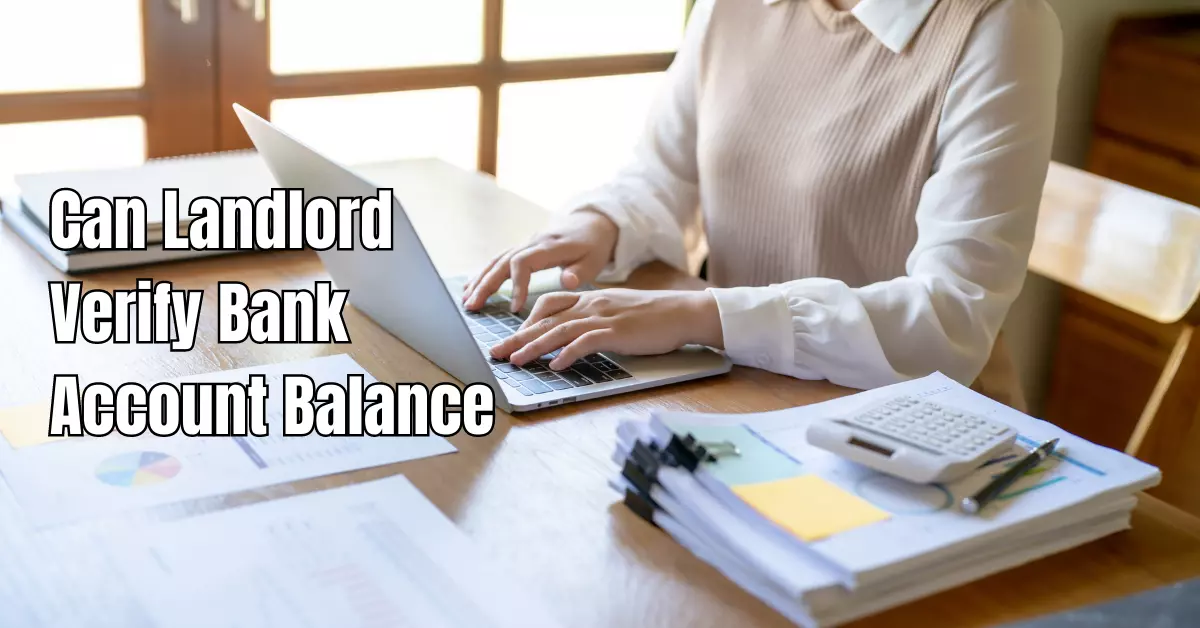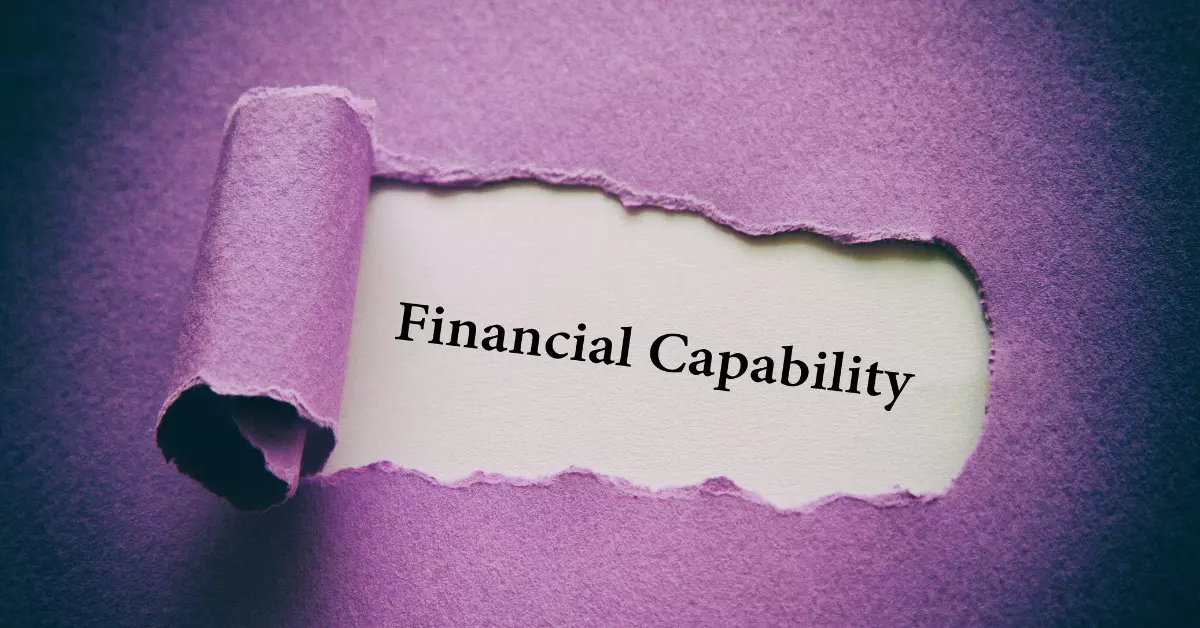Can Landlord Verify Bank Account Balance? Rental Awareness
A landlord can request to verify a tenant’s bank account balance as part of the rental application process, but they must have the tenant’s consent. This verification is usually done to ensure the tenant has sufficient funds to pay rent. However, it’s important to respect privacy and legal boundaries.
Landlords often request proof of income and financial stability from potential tenants during the rental application process. This includes information such as bank statements, pay stubs, and credit reports.
While tenants may be hesitant to provide this information, it is a common practice for landlords to use this information to determine if a tenant can afford the rent and is a stable rental candidate.
It is important for tenants to read the fine print of their rental agreement to understand what information may be requested and how it will be used.

What Is Bank Account Verification?
Definition Of Bank Account Verification
Bank account verification is a process where a landlord checks a tenant’s bank account balance to determine if they can afford to pay rent. It involves accessing a tenant’s bank account to review their balance and transactions to evaluate their financial status.
Why Landlords Need To Verify Bank Account Balances
Landlords need to verify a tenant’s bank account balance for multiple reasons, including:
- To ensure the tenant has enough money to pay rent.
- To avoid the risk of leasing their property to a tenant who may not be able to afford the rent.
- To minimize the risk of rent payment defaults.
- To safeguard their investment by selecting a financially stable tenant.
The Different Types Of Bank Account Verification
There are different methods that landlords can use to verify a tenant’s bank account balance. These methods include:
- Bank statements: Landlords can ask for a tenant’s bank statements, which show their financial details such as balances, transactions, and overdrafts.
- Online account verification tools: Some third-party providers offer online tools that allow landlords to verify a tenant’s bank account details with their consent.
- Credit reports: Landlords can also check a tenant’s credit report that includes their financial details, such as credit score, outstanding balances, and payment history.
It is crucial for landlords to choose the most appropriate method of bank account verification based on their specific requirements and the tenant’s situation. In all cases, landlords must respect the tenant’s privacy and only access bank account information with their consent.
Can Landlords Verify Bank Account Balances?
Are you a tenant worried that your landlord may try to verify your bank account balance? As a tenant, you may have concerns regarding the privacy and accessibility of your bank account information by your landlord.
Understanding The Legalities Of Bank Account Verification
To start with, landlords are not permitted to access your bank account information unless they have a legal right to do so, which means they can’t check your bank account balance without your permission. Landlords can only obtain access to tenant bank account information under the following legal circumstances:
- Specific provisions in your lease agreement grant the landlord access to bank account information.
- Court orders require a tenant’s bank account information to be shared with the landlord.
- Landlords are entitled to review tenant bank account information only in specific states with relevant legislation or within certain jurisdictions.

Landlord Rights To Access Bank Account Information
As a landlord, possessing the right to verify the bank account details of your tenants means you have a specific responsibility to uphold. Here are some vital points to keep in mind if you need to verify bank account balance for your tenant:
- Landlords can access bank account information with the tenant’s written authorization. It is crucial to indicate why the information is necessary and the method of accessing the details.
- Landlords must provide a written request for bank account details that clearly outlines the reason for seeking the information.
- Landlords are responsible for ensuring tenant bank account information is secure and completely confidential.
Tenant Rights: How To Protect Your Bank Account Information
As a tenant, you need to protect your bank account information while keeping cordial relations with your landlord. Here are some of your rights and limitations concerning your bank account information:
- Tenants are not obligated to disclose their bank account information unless agreed upon in multiple legal documents.
- Tenants have the right to know why a landlord is seeking access to their bank account information and the method of accessing the details.
- Tenants have the right to deny access to their bank account information.
- If you deny access to your bank account information, it might become difficult for your landlord to evaluate you since it is one way they may check your creditworthiness.
Landlords cannot verify your bank account balance or access your bank account details without your permission. If they do, it is considered a gross violation of your privacy rights.
Always know your rights, communicate with your landlord openly, and avoid disclosing your bank account details to untrustworthy sources.
Alternatives To Bank Account Verification
As a landlord, assessing a tenant’s financial situation can be a tricky task. While verifying a tenant’s bank account balance might provide an accurate financial picture, it can be time-consuming and invasive. Luckily, there are alternative ways to verify a tenant’s financial capabilities.
Other Ways For Landlords To Verify Tenant’S Financial Capabilities
- Previous landlord references: A tenant’s payment history can be an indication of their financial standing. Requesting references from previous landlords can provide insight into a tenant’s payment history and overall financial responsibility.
- Credit check: A credit check can give insight into a tenant’s financial history, including their credit score, payment history, and outstanding debts.
- Income verification: Requesting income verification from a tenant can help assess their financial capabilities. This can include pay stubs, tax returns, or employment verification from an employer.
- Guarantors: A guarantor is a third-party individual who agrees to assume financial responsibility for the tenant’s lease. This can provide an extra layer of financial security for the landlord.

Pros And Cons Of Alternative Verification Methods
Previous landlord references:
- Pros: Provides insight into tenant’s payment history and reliability.
- Cons: Reference may be biased, and not all landlords may respond to reference requests.
Credit check:
- Pros: Provides a comprehensive look at a tenant’s financial history and standing.
- Cons: Requires the tenant’s permission, and not all tenants may have established credit history.
Income verification:
- Pros: Provides a clear understanding of a tenant’s financial capabilities.
- Cons: Landlord may need to request personal and sensitive financial information, which some tenants may not be comfortable sharing.
Guarantors:
- Pros: Provides an additional layer of financial security for the landlord.
- Cons: Relying on a guarantor may not always be feasible, and finding a guarantor may be difficult.
Best Practices For Landlords And Tenants
To ensure a successful tenancy and maintain a positive landlord-tenant relationship, it’s important for both parties to adhere to best practices.
For landlords:
- Be upfront about your financial requirements and screening process.
- Follow fair and consistent screening practices for all applicants.
- Respect tenants’ privacy and be transparent about the type of information you need.
For tenants:
- Provide all necessary and relevant information to the landlord to facilitate the screening process.
- Be transparent about your financial history and capabilities.
- Ask any questions or voice any concerns about the screening process.
Overall, while bank account verification can provide an accurate financial picture of a tenant, there are alternative ways to verify a tenant’s financial capabilities. With transparent communication and fair screening practices, landlords and tenants can ensure a successful tenancy.
Frequently Asked Questions For Can Landlord Verify Bank Account Balance?
Can Landlords Legally Check Bank Account Balance?
Yes, landlords can legally request bank account balances as part of the tenant screening process.
Why Do Landlords Check Bank Account Balances?
Landlords check bank account balances to ensure potential tenants have sufficient funds to pay rent and other bills.
Can Landlords Access Bank Accounts Without Permission?
No, landlords cannot access tenants’ bank accounts without permission. This would be a violation of privacy laws.
What Other Financial Information Can Landlords Request?
Landlords can request information about income, employment status, credit score, and current debt to assess a tenant’s financial stability.
Conclusion
Based on the information presented, it is possible for a landlord to verify a tenant’s bank account balance under certain circumstances.
However, it is important to note that landlords must follow strict legal protocols and obtain the tenant’s written consent before doing so.
Ultimately, communication between landlords and tenants is key in addressing any concerns regarding rent payment and financial stability. Open dialogue can help alleviate any potential misunderstandings and provide a mutually beneficial solution.
As always, it is important to consult with legal professionals for guidance on any legal matters related to landlord-tenant relationships.
Source: https://landlordacademy101.com/can-landlord-check-bank-account-balance/